

The fear of Friday the 13th is called paraskavedekatriaphobia a specialized form of triskaidekaphobia, a phobia (fear) of the number thirteen.
Despite our well-developed brains, our complex technologies and centuries of scientific progress, the human race remains a fearful, superstitious people from ancient times to modern day prophecies - and across all cultural divides.
Friday the 13th superstitions originated in a Norse myth about twelve gods having a feast in Valhalla. The mischievous Loki crashed the party as an uninvited 13th guest and arranged for Hod, the blind god of darkness, to shoot Baldur, the god of joy and gladness, with a mistletoe-tipped arrow. Baldur was killed and the Earth was plunged into darkness and mourning as a result.
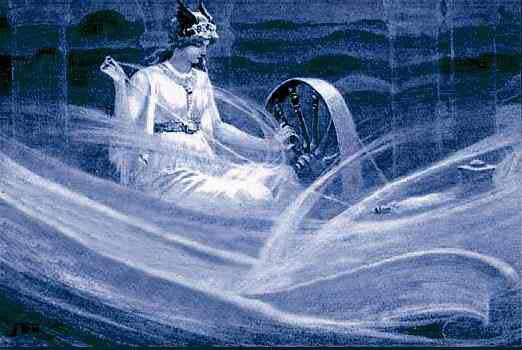
Frigg
'Friday' was named after Frigg (or Frigga),
the Norse goddess of
marriage, prophecy, clairvoyance and motherhood.
Later she was confused with the goddess of love, Freya, who in turn became identified with Friday. When the Norsemen and Germanic tribes became Christians, Freya was supposed to have been banished to the mountains as a witch. Friday came to be called 'witches' Sabbath. It was believed that on this day, each week, twelve witches and the Devil met - thirteen evil spirits in all.
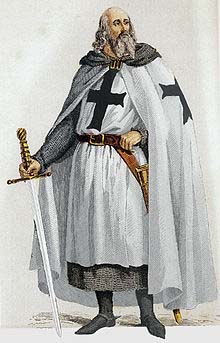
Another theory about the origin of this superstition takes us to the arrest of Jacques de Molay, Grand Master of the Knights Templar and 60 of his senior knights, on Friday, October 13, 1307, by King Philip IV of France. That day thousands of Templars were arrested and subsequently tortured. They then 'confessed' and were executed. From that day on, Friday the 13th was considered by followers of the Templars as an evil and unlucky day.
The Knights Templar takes us to the Priory of Sion. The treasures and secrets of these mystical organizations take us to the American continent and the Freemasons, who carried the energy signature of the creation of our reality with them. They left us symbolic clues some of which include number 13.
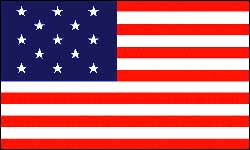
The original US flag had 13 stars.
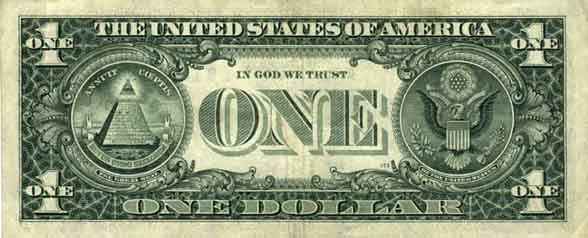
The US One Dollar Bill depicts the Pyramid at Giza - All Seeing Eye Above
The Eye symbolizes the Black Hole at the center of the Milky Way Galaxy

13 illuminated stars form a Star of David around a central source
Merkabah - Movement of Consciousness in and out of realities
The number 13 is probably the most common of all superstitions, considered a bad luck day unless you were born on Friday the thirteenth in which case it is allegedly your lucky day.
In many cultures, getting married on any day of the week that falls under number 13 is highly discouraged.
There is a superstition that should thirteen sit at a table to dine, one will die in the next year. This prompted the formation of The Thirteen Club to debunk it.
It was suggested by Charles A. Platt writing in 1925 that the reason 13 is considered unlucky is that a person can count from 1-12 with their 8 fingers, two thumbs and 2 feet, but not beyond that, so the number 13 is unknown, hence frightening, hence unlucky. This idea discounts the use of toes or other body parts in counting.
Early nursery rhymes stated there were thirteen months in a year because of the natural moon cycle that was used to count the lunar year. In England, a calendar of thirteen months of 28 days each, plus one extra day, known as "a year and a day" was still in use up to Tudor times.
In Scotland, there is no gate 13 in any airport, instead there is a gate 12B.
Inside of a Lufthansa plane with row numbers going straight from 12 to 14.
Some airplanes skip a row 13, going straight from 12 to 14.
Some tall buildings have resorted to skipping the "thirteenth floor".
Some streets do not contain a house number 13.
In some forms of motor sport, for example Formula One, there is no number 13 car.
The Apollo 13 spacecraft malfunctioned after being launched on April 11th at 13:13 CST, forcing it to return to Earth without a landing on the moon and imperiling its crew.
The Code of Hammurabi, a collection of laws created ca. 1760 BC, does not contain a thirteenth law.
The College of William and Mary claims 13 priorities, or achievements of the academic world, which they accomplished before any other university or college in the United States. For example, William and Mary was the first college in the US to establish an honor code. A marble plaque commemorating these 13 priorities hangs on the exterior wall of the Wren Building, the nation's oldest academic building still in continuous use.
Author Stephen King wrote an article for The New York Times in 1984 listing some unlucky Friday the 13ths in history, and explaining that when he reads a book, he won't stop on page 94, page 193 - or any page whose digits add up to 13. "ItŐs neurotic, sure," he conceded. "But it's also ... safer."
President Franklin Roosevelt was acutely afraid of the number 13 and would avoid traveling on Friday.
Yiddish author and playwright Sholom Aleichem - who created the character Tevye from "Fiddler on the Roof" - wrote manuscripts omitting page 13 which he numbered 12a.
Austrian-American composer Arnold Schoenberg's fear of number 13 came to pass in this way. He died on a Friday the 13th in 1951.
U.S. President Franklin D. Roosevelt said, "The only thing we have to fear is fear itself." He didn't like the number 13. He hated to travel on Friday the 13th or have 13 people at dinner. He died on Thursday, April 12, 1945, just before Friday the 13th.
13 is a Fibonacci Number. 0, 1, 1, 2, 3, 5, 8, 13, 21, 34 ...
Creation is based on the Fibonacci Sequence. The brain is a computer that runs on binary code.
Sacred Geometry. There are 13 circles in Metatron's Cube .
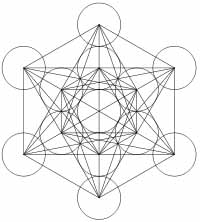
12 Around 1 or 13 to create realities of experience
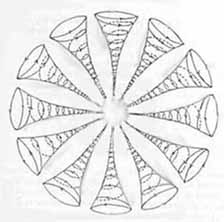
13 is the 6th prime number. 6 is sometimes considered an unlucky number due to its association with 666 (18=9=closure).
13 is the second Star Number.
13 is the atomic number of aluminum. In chemistry and physics, the atomic number (also known as the proton number) is the number of protons found in the nucleus of an atom. It is traditionally represented by the symbol Z. The atomic number uniquely identifies a chemical element. In an atom of neutral charge, atomic number is equal to the number of electrons. The atomic number is closely related to the mass number, which is the total number of protons and neutrons in the nucleus of an atom.
The lunisolar calendar generally has 12 months but every second or third year has 13. According to another interpretation, the number 13 is unlucky because it is the number of full moons in a contemporary year, but two full moons in a single calendar month (mistakenly referred to as a blue moon in a magazine article of the 1940s) only happens about every 5 years.
(13 = 1+3) = 4. About number 4
Reality is a consciousness matrix.
In 2000, 'The Thirteenth Floor' was nominated for
the Saturn Award for Best Science Fiction Film.
The award went to The Matrix.

A clock is often depicted as 12 around 1
When Time ceases to exist the Illusion Fades to Black and Ends.

13 people at the Last Supper 12 disciples around Jesus